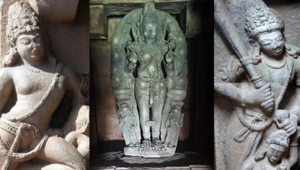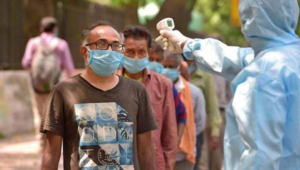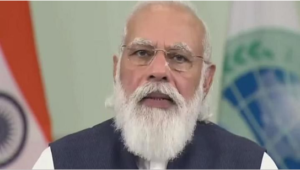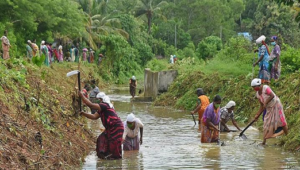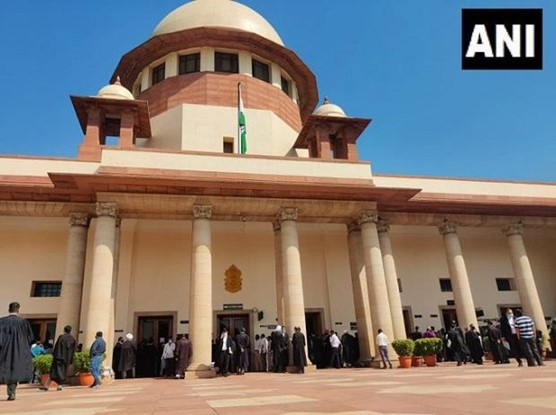
The News Editorial Analysis 18th Dec 2021
Omicron tally rises to eight in Telangana
At a time when the pandemic seemed to be under control in Telangana, the State has been getting Omicron cases from abroad and its tally went up to eight on Friday.
The infected persons came from Kenya (3), Abu Dhabi (2) and Dubai, Sudan and the UK (1 each). Two of them were from `at risk’ countries and six from `not at risk’ countries. One more boy who was on a transit halt at Hyderabad international airport tested positive but the result of genome sequencing was known after he had left for Kolkata.
Of the eight infected persons in the State, seven were from in and around Tolichowki in Hyderabad and one woman from Hanamkonda.
She tested negative on arrival from the UK but confirmed as positive case by the result of genome sequencing on Thursday evening. Giving these details at a press conference today, Director of Public Health G. Srinivasa Rao said there was no cause for concern at this stage as all positive cases were asymptomatic.
There was reason for concern if the infected persons carried symptoms of fever or flu.
He, however, warned that Omicron variant had the potential of spreading two to six times faster than COVID-19 with mild symptoms.
Dr. Rao explained that screening at Hyderabad airport was stepped up since December 1 after outbreak of Omicron cases were reported.
So far, as many as 6,764 passengers from `at risk’ countries were screened. Only two per cent of total passengers in a flight from `not at risk’ countries were tested as per laid down norms.
He described Omicron as an offshoot of COVID whose diagnosis and treatment protocols were the same. They carried the same symptoms.
SC stays probe by Bengal commission on Pegasus

The Supreme Court on Friday stayed further proceedings of a commission of inquiry appointed by the Government of West Bengal to look into the allegations of snooping using the Pegasus software.
A Bench led by Chief Justice of India (CJI) N.V. Ramana impleaded the commission, comprising former Supreme Court judge, Justice Madan B. Lokur, and retired Chief Justice of the Calcutta High Court, Justice Jyotirmay Bhattacharya. The court issued notice to the panel to be served through its secretary.
‘Parallel inquiry’
The order was passed after NGO ‘Global Village Foundation’ Trust made an urgent plea that the commission was going ahead with a “parallel inquiry” into the Pegasus allegations.
The Supreme Court had appointed a committee led by retired Supreme Court judge, Justice R.V. Raveendran, in October to “expeditiously” examine the Pegasus snooping reports.
West Bengal’s move in July to appoint the commission of inquiry was first heard by the Supreme Court in August.
Cotelligent sets up CoE on cybersecurity
TechDemocracy firm Cotelligent, focused on cybersecurity products and services, has set up a centre of excellence (CoE) for cybersecurity in the city.
The new facility, on about 20,000 sq ft area with a capacity to accommodate over 500 employees and staff, will serve as the engineering and remote delivery hub of operations for TechDemocracy. It will play a key role in assisting businesses in managing cyber threats, compliance requirements as well as serving as a focus for global cybersecurity innovation, Cotelligent said in a release on inauguration of the facility by IT and Industries Minister K.T. Rama Rao.
Cotelligent said it will work with Telangana government through TASK to train and develop over 2,000 cyberwarriors through the CoE. It is a one-of-a-kind effort to recruit, educate, train and create a talent pool of cybersecurity experts to make Telangana the hub for cybersecurity practice, innovation and research.
The company also intends to raise its headcount by more than 1,000 over the next five years.
Founder and CEO of Cotelligent Srikiran Patibandla said the Cotelligent team in India will leverage best practices across consulting delivery and software tools like Intellicta, developed by the Cotelligent team in Hyderabad, to assist senior business decision-makers evaluate in-depth effectiveness of their cybersecurity, governance, risk, and compliance programmes.
Raising women’s legal age of marriage to 21 in House agenda
With four sittings of winter session remaining the government has listed eight Bills for the next week, including The Prohibition of Child Marriage (A) Bill, 2021 that seeks to raise the legal age of marriage for women from 18 to 21 years and bringing it at par with men.
While the Bill is likely to be introduced on Monday in Rajya Sabha, Minister of State (MoS) for Parliamentary Affairs Arjun Ram Meghwal, informed Lok Sabha on Friday that it is part of the House’s agenda for the next week.
Other important Bills on top of the government’s legislative agenda for the next week include the passage of the supplementary demands for grants/Appropriation (No.5) Bill and the Election Laws (Amendment) Bill, 2021 that seeks to link the Aadhaar card with the voter identity card.
While Rajya Sabha is likely to take up the Narcotic Drugs and Psychotropic Substances (Amendment) Bill, 2021, as passed by Lok Sabha, the Mediation Bill, 2021 – seeking to promote and facilitate institutional mediation for resolution of disputes – is likely to be sent to the Standing Committee.
Opposition’s demand
Three of the eight Bills — the National Anti-Doping Bill, 2021, the Wild Life (Protection) Amendment Bill, 2021, and the Chartered Accountants, the Cost and Works Accountants and the Company Secretaries (Amendment) Bill, 2021 — were introduced in the Lok Sabha on Friday amid constant protests from Opposition members, who were demanding the resignation of Minister of State (MoS) for Home Affairs Ajay Mishra ‘Teni’, for his alleged involvement in the Lakhimpur Kheri violence earlier this year.
When the Lok Sabha met at 2 p.m., apart from introduction of the Bills, it also approved changes made to the Surrogacy (Regulation) Bill by Rajya Sabha through a voice vote and soon after the House was adjourned for the day.
Protests over the Lakhimpur Kheri killings had erupted almost as soon as Lok Sabha proceedings started at 11 a.m. but Speaker Om Birla tried running the Question Hour for half an hour.
Opposition warned
He had also issued a stern warning to Opposition members who were protesting in the Well of the House.
“Honorable members, if there is any damage to any Lok Sabha property, then the responsibility lies with the members. I would like make this request to member,” Mr. Birla cautioned the members who were protesting in the Well and around the secretary general’s desk.
‘52 habeas corpus pleas pending in SC’
A total of 52 petitions relating to “habeas corpus matters” are pending in the Supreme Court as on December 13, Law Minister Kiren Rijiju informed the Lok Sabha on Friday.
A habeas corpus is a writ used to challenge the unlawful detention or imprisonment of a person and protects fundamental rights.
In response to a question on the number of habeas corpus pleas pending in the Supreme Court and High Courts till date, the Minister shared the number of pending cases according to the Supreme Court Subject Category Code 1300 that relates to “habeas corpus matters” in the Supreme Court.
Giving a break-up for the past four years, the Minister said that at the end of 2020, 53 such cases were pending in the top court; there had been 40 cases at the end of 2019; and there were 43 such cases at the end of 2018.
To another question on whether the government proposed to fix any time limit for ensuring speedy justice in the increasing cases of crimes against women, Mr. Rijiju said, “Disposal of pending cases in courts is within the domain of the judiciary. No time frame has been prescribed by the respective courts.”
Ecologists oppose changes to Biological Diversity Act, 2002
Environmentalists have expressed concern over amendments to the Biological Diversity Act, 2002 on the grounds that it prioritises intellectual property and commercial trade at the expense of the Act’s key aim of conserving biological resources.
Amendments to the Act were introduced as a Bill in the Lok Sabha by Environment Minister Bhupender Yadav on Thursday.
On Friday, Rajya Sabha member Jairam Ramesh, who also chairs the Parliament’s Standing Committee on Science, Technology and Environment, wrote a letter to Lok Sabha Speaker Om Birla “protesting” his decision to refer the amended Bill to a select committee when the Bill ought to have been perused by a standing committee that had existing mandate to examine questions of science and environment.
The amended Bill was drafted in response to complaints by traditional Indian medicine practitioners, seed sector, and industry and researchers that the Biological Diversity Act, 2002.
Compliance Burden
The bill was enacted for conservation of biological diversity and ensure fair and equitable sharing of the benefits arising out of the use of biological resources with indigenous and local communities, imposed a heavy “compliance burden” and made it hard to conduct collaborative research and investments and simplify patent application processes.
The text of the Bill also says that it proposes to “widen the scope of levying access and benefit sharing with local communities and for further conservation of biological resources.”
The Bill seeks to exempt registered AYUSH medical practitioners and people accessing codified traditional knowledge, among others, from giving prior intimation to State biodiversity boards for accessing biological resources for certain purposes.
A statement from the Legal Initiative for Forest and Environment (LIFE) said the Bill would “undo all the efforts made in the last few years to implement the Biological Diversity Act.”
There was not a “single provision in the proposed amendment to protect, conserve or increase the stake of local communities in the sustainable use and conservation of biodiversity.”
LIFE said the amendments were done to “solely benefit” the AYUSH Ministry. The Bill in the current form would pave the way for “bio piracy” and would mean AYUSH manufacturing companies would no longer need to take approvals and thus defeat the purpose for which the Act was created in the first place.
Russia drafts pact to limit U.S., NATO role in ex-Soviet nations
Russia on Friday unveiled proposals to contain the U.S. and NATO in the former Soviet Union and Eastern Europe, calling for urgent negotiations with Washington as it amasses forces near Ukraine.
The U.S. said it was willing to talk but stated upfront that it disagreed with much in the far-reaching proposals, as it renewed warnings of painful reprisals if Russia invades Ukraine.
Russia released unfinished security documents — an unusual move in diplomacy — that call for U.S.-led NATO alliance not to bring in new members or establish bases in ex-Soviet countries.
Deputy Foreign Minister Sergei Ryabkov said Russia was ready to hold urgent security talks with the U.S. “as early as” on Saturday.
“We are ready to immediately, even tomorrow — literally tomorrow, on Saturday — go for talks with the U.S. in a third country,” he told reporters, suggesting Geneva as a venue.
In Washington, a senior official said the U.S. expected to respond “sometime next week” to Russia on a format for talks but made clear it was not enthusiastic about the proposals.
“If there is any further aggression against Ukraine, that will have massive, massive consequences and will carry a high price,” the official said.
White House Press Secretary Jen Psaki noted that the U.S. has negotiated with Moscow on strategic concerns for decades but said it would only act in concert with NATO allies. “There will be no talks on European security without our European allies and partners,” she told reporters.
The West says Moscow has readied some 1,00,000 troops for an imminent attack on Ukraine, which has been battling a pro-Moscow insurgency in its east since 2014.
Russian President Vladimir Putin denies planning an attack and blames NATO for the rise in tensions, demanding “legal guarantees” the alliance will not expand eastwards.
The draft document addressed to NATO says its members should “commit themselves to refrain from further enlargement, including the accession of Ukraine as well as other states”.
It also insists that alliance members not conduct military activity in Ukraine or other countries in Eastern Europe, the South Caucasus and Central Asia.
Moscow and NATO, the document said, should limit the deployment of missiles, set up an emergency telephone hotline and also work to “prevent incidents” in the Baltics and the Black Sea.
WHO emergency nod for Serum Institute’s Covovax
The World Health Organisation on Friday said it had granted emergency approval to the India-manufactured coronavirus vaccine Covovax.
The jab, produced by the Serum Institute of India under licence from the U.S.-based Novavax, will now be distributed as part of global vaccine-sharing system Covax, “giving a much-needed boost to ongoing efforts to vaccinate more people in lower income countries”, the WHO said.
“Even with new variants emerging, vaccines remain one of the most effective tools to protect people against serious illness and death from SARS-COV-2,” said Mariangela Simao, the WHO’s access to vaccines chief.
“This listing aims to increase access, particularly in lower income countries, 41 of which have still not been able to vaccinate 10% of their populations, while 98 countries have not reached 40%,” she said.
Covovax requires two doses and is stable at 2 to 8 degrees Celsius refrigerated temperatures.
Doctor with Indian roots Picked for NASA proj
Dr Anil Menon, who was chosen by NASA recently to be an astronaut in its future space missions, said India could partner the US in such missions in future. Chosen from around 12,000 candidates, Menon, who has his roots in Kerala, will start training in January. He said NASA intends to go for a major moon mission in 2025 when it plans to send a man and a woman there.
A flight surgeon with the US Air Force, Menon is excited to be one among the 10 trainee astronauts in NASA’s mission. He will report on January 10, 2022 for NASA’s 2021 Astronaut Candidate Class. “Since I love space medicine, I’m excited to find out how the body changes in space. I would like to study about it and bring it back to the community, so I can share the knowledge with others,” Menon told TNIE during an interview over telephone from Colarado.
Tackling mental health inequalities in our country
The World Federation for Mental Health (WFMH) themed this year’s Mental Health Day as “Mental health in an unequal world”. Inequalities pertaining to global mental health are being discussed in comfortable armchairs of well-ventilated conference rooms, while at the grassroots level, another adolescent suffocates himself sniffing whitener fluid. A correction is indeed needed. The preamble of mental health needs to be rewritten for the welfare of the people, for the people, by the people.
The inequalities are manifold. Mental health is almost like the Cinderella of health, given step-sisterly treatment, abused and neglected. The glass slipper is unique and not equal to the rough trekking boots of physical health. The delicate curation of issues associated with mental health highlights the first inequality. Mental health is an invisible disability, absent to the naive observer, further compounded by its dynamic nature and impairing abstract domains of social and cognitive capacity.
The second inequality lies in the systematic stigma faced by mental health compared to other non-communicable diseases (NCDs). Mental health is the frog prince of NCDs; even though India was the first country with a dedicated National Mental Health Programme (NMHP), it has always been gauged through the lens of other NCDs like diabetes, cardiovascular diseases, etc., and was in fact deemed unsuccessful, without giving it enough time. The need to understand the complexities of mental health while also including it in primary healthcare packages at par with other NCDs is a delicate balance that will be the kiss of a princess to realise its full potential.
It is not just the identity of mental health that is at stake; the causative models of mental health and their disproportionately higher prevalence in vulnerable groups highlights the third inequality. The three little pigs of mental health—biological, psychological and social factors—are dynamically interacting, which provides the scaffold for mental health. However, the wolf of adversities differentially dismantles the people living in houses of straw and sticks. The bidirectional relationship between poverty and mental health has been well-recognised and evidenced. Poverty brings with it stress, debt and a struggle to sustain; existence is equal to surviving another day. The social causation theory talks about impoverishment as an important determinant of mental illness whilst people living with such problems are often unable to work and thus get stuck in the vicious loop of disease, disadvantage and disability. These vulnerabilities are exponentially enhanced in religious and sexual minorities, which have been further intensified by the ensuing Covid-19 pandemic. These inequalities are existent in terms of visible (poor infrastructure, etc.) and invisible factors (stigma, etc.). Ways of improving access from both the demand and supply side and stressing on the felt needs of individuals despite various barriers is the reinforcement needed for the flailing infrastructure. The Mental Healthcare Act of 2017 is a rights-based model that, under Section 18, guarantees every person the right to access to mental healthcare (free essential psychotropics, ambulance services, etc.) and qualifies an individual for compensation from the state in the absence of the same. It is a step in the right direction.
Not only recovery but also treatment needs to be viewed with a spectral perspective; both should not necessarily aim at an absence of disease as this may increase inequalities between ill and normal when the entire construct of mental illness is itself lying on a spectrum. To mitigate this, we need to focus on universal, selected and indicated prevention. “Prevention is better than cure” is an adage that has stood the test of time, place and person. Increasing health expenditure in general and mental health costs in particular, training community mental health workers in basic counselling skills, imparting awareness and inculcating protective lifestyle habits like yoga, correct nutrition, etc., are the way forward rather than focusing on just those with diagnosed mental illness and reconceptualising it as a family diagnosis rather than an individual one.
The final inequality is in terms of available mental health infrastructure. It is a sad reality that the number of mental health professionals available in the country is far below the required international standards. A majority of these limited professionals are concentrated in urban settings whereas a major chunk of the Indian population resides in rural areas. There is also a clear North-South divide. Many early-career psychiatrists drift to Western countries due to a multitude of reasons. As psychiatry is still not a golden egg speciality like radiology and dermatology, better inclusion in the medical curriculum, more hands-on experiences with psychiatric patients and adopting a community integration model for people with mental illness rather than institutionalisation may open new vistas for medical graduates and reduce inequalities in mental health from a service provider’s stance.
Thus, mental health in the current scenario is not a fairy tale. However, we all can strive to be the fairy godmother and provide the necessary mental health infrastructure to promote mental well-being. We must be the change we want to see and help write the next chapter in the book of mental health in an ideal world.
The News Editorial Analysis 17th Dec 2021






